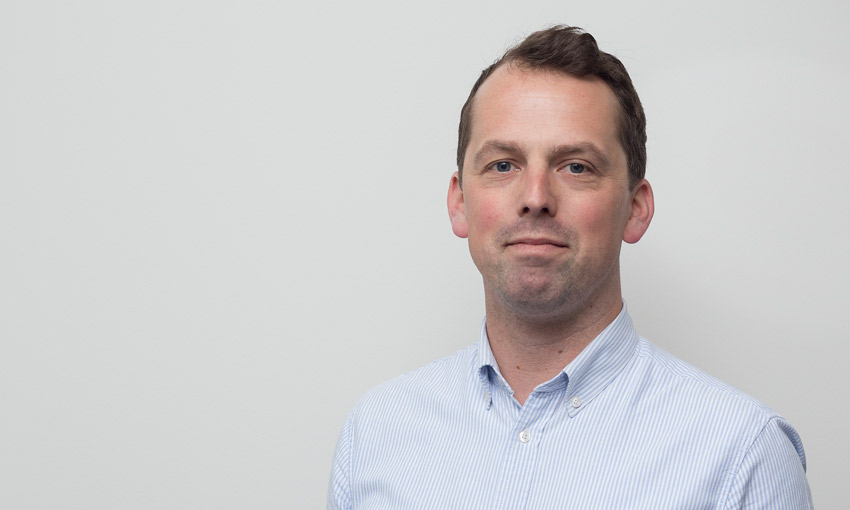What does a day in the life as DCN editor look like for you?
A lot of reading and a lot of writing. A lot of talking on the phone and sometimes a lot of taking pictures. Wrangling freelancers and contributors and sometimes herding cats.
What’s the most memorable story you’ve worked on here?
The most memorable was probably the Portland Bay story. I woke up early in the morning to a source sending me a screenshot of a map of the bulk carrier Portland Bay heading straight for the Royal National Park. I knew it was going to be a long day. I got on the phone and started making calls and didn’t stop for a few days. But a lot of the people who were actually involved in the situation had a much more intense, and dangerous job than I did – I have a lot of respect and admiration for everyone involved in that incident – especially the guys on the ship and those on the tugs. Aside from that, I recently wrote a story about birds eating a lighthouse in South Australia.
What were you doing before you joined DCN?
I’d studied journalism for a year then carpet-bombed Australia with my resume. The two interviews I got were Mount Isa’s North West Star and what was, at that time, Lloyd’s List Australia. That was about eight years ago. And as I was accepting the job in old Peter Attwater’s office in Kent Street, I was getting a call from the North West Star telling me that I did not get that job, which was probably good. I don’t think I or my wife would have liked living in Mount Isa. Before I became a journalist, I was an English teacher in Istanbul. And before that, I was a musician/barman/chef in the US.
Tell us about life in Istanbul.
I miss living in a place where the language isn’t English – I really enjoyed learning Turkish. I loved learning something every day when I left the house, whether it was a new word or a new way to say things. And there is a lot of history and a lot of delicious food in Istanbul. Great music too.
Where did you grow up?
I grew up in Seattle, Washington. It’s cold and rainy there. I spent a lot of time in the mountains. They’re mountains with glaciers on them, unlike the Blue Mountains, which are not mountains. No matter what people say, they are just not mountains.
What kind of music do you play?
I grew up playing violin and then started playing the bass guitar in jazz bands. In university I played a lot of violin and bass in rock, country and punk bands. I was also a member of an avant garde music collective – we recorded an album in a half-built nuclear power station. I also went on several tours of the US, mostly up and down the West Coast. I got to see a lot of the country from the back of a tour van – a great way to travel.
What’s your most unusual memory from a tour?
One time, this Dutch architect was doing a speaking tour in the northwest of the US. For some reason, he liked a band I was in and invited us to go on tour with him. We thought it was pretty strange, but we couldn’t really say no. We did two gigs with him. One was in Portland, Oregon, and that was like a rock and roll show with an architecture lecture attached to it. And then we did a gig in Vancouver, Canada, which was an architecture lecture with a rock and roll show attached to it, which was less fun, because architecture lecture people are less excited about rock and roll than rock and roll people are about architecture lectures.
What kind of music do you listen to?
I’ve been really into the Reverend Fred Lane and his Hittite Hot Shots, particularly two of his older albums, one called “Car Radio Jerome” and one called “From the One that Cut You”. They’re both great, and very strange. It’s kind of like, if you were on a cruise ship and that cruise ship was in hell, this would be the house band. I’ve also been listening a lot to Charles Mingus, Nusrat Fateh Ali Khan, and the Melvins. Also a lot of Waylon Jennings, Tom Heinl, Hank Williams and the Maddox Brothers. I’ve been in a very deep country music obsession over the past few months.
What’s your favourite film?
“Repo Man”. It’s about aliens and punks and the FBI in Los Angeles in the early 1980s. And it’s absolutely 100% brilliant.
What’s next for you?
I’m moving to an exciting new role at a daily newspaper. When I leave DCN I’m definitely going to miss the people the most. I like that this job allows me to talk to everybody from deck cadets all the way up to CEOs and sometimes politicians. It’s been great getting to know everybody, getting to know the industry and how everything works. I will miss it, but I won’t be too far away in my new role.
This article appeared in the February 2024 edition of DCN Magazine





